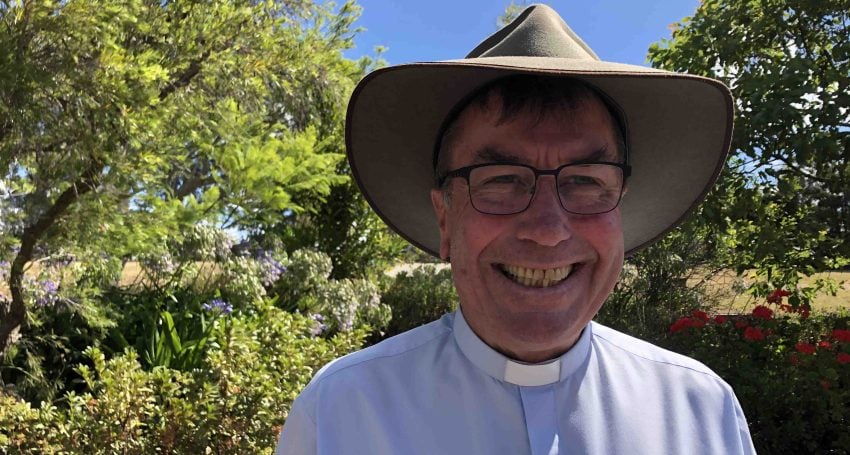Ministry review reflections
Reflections
“The ministry review model that I chose for the pilot provides a framework to truly ponder, reflect and pray about our faithfulness and commitment to the Ordinal, which covers, in some way, all a parish priest’s ministry responsibilities,” says The Rev’d Rick Gummow from The Parish of Drayton

I was invited to participate in a Parish and other Mission Agencies Commission (PMC) ministry review pilot last year. I became involved so that I could formalise something I had been doing informally for some time. I realised that without external “guidelines”, it is quite easy to miss whole areas of ordained ministry review because of a common tendency for clergy to merely obsess about troublesome or burdensome areas or pat ourselves on the back in more confident areas. Neither is very spiritually or practically helpful.
Advertisement
There are a number of ways or models that clergy can comprehensively conduct ministry reviews. The way or model we choose depends as much upon our personality as anything else. I was offered the choice to pilot one of five different ministry review models. I chose an “individual” self-review using an effective tool provided by the PMC.
An alternative model that involves external reviewers could also be helpful in terms of accountability, for sure; however, I opted for the individual review model because I think each ministry context is utterly unique, particularly that of a parish priest. An external reviewer, I felt, would not know the nuances of the parish I serve in, for instance.
The other reason I chose the individual model is because it starts out very broadly and narrows down specifically to the individual clergyperson’s faithful commitment to the Ordinal, which was the basis for my prior “informal” ministry reviews.
The broad individual self-review introduction allows us to commence at the beginning, with questions like “What am I here for?” and “What are the core responsibilities in my work?” Well, there are taking services, of course, pastoral care, funerals and baptisms and weddings. Hold on, yes! There is also administration and building maintenance, parish communications, WHS and managing teams of faithful volunteers with very different skill sets doing very different things. For example, being a parish councillor requires different skills to being a parish intercessor.
The benefit of the review is that clergy can look at all these things and decide which take up the most time, which are the most rewarding and which are the most challenging. Over the review period (a year, say), I could consider:
- What are we doing well at?
- What could have gone better?
- Did we attain any of the goals we had set?
- What was in place, or not in place, that thwarted our attaining it?
Such questions lead me to what is possibly the most important question: What further development would my ministry and/or I benefit from to address any challenges and enable my ministry to flourish further?
Clergy can’t be skilled experts in all areas of responsibility, so we seek to engage people with great talents and skills already in the parish. This is a given. However, another key benefit of the ministry review process is that I can meaningfully reflect on “What am I here for?” and “What do I need be faithful to?” above all else as a priest, as I was empowered by the laying on of hands to be.
This is where the individual self-review narrows in on such questions and on the promises and prayers offered and made in the Ordinal, and what I most find helpful in this particular model.
This model asks the questions the Ordinal asks, and adds a subset of questions and reflections that take time to work through. I find this approach immensely rewarding.
For example, the Ordinal asks things like:
- Will you constantly stir up the gift of God that is in you, so that you may proclaim the gospel of Christ?
- Will you be a faithful pastor to all…faithful in prayer that you may have the strength to run the race that is set before you?
- Will you constantly seek the help of the Holy Spirit to use and develop God’s gifts to you?
- Will you faithfully and humbly minister the doctrine, sacraments, and discipline of Christ, as he has commanded them and as this church has received them?
And, so on.
The ministry review model that I chose for the pilot provides a framework to truly ponder, reflect and pray about our faithfulness and commitment to the Ordinal, which covers, in some way, all a parish priest’s ministry responsibilities.
The ministry review process, when done faithfully and humbly, drills into the core of what we are here for – to love and serve God and our parish in the person of Jesus Christ.
Advertisement
Wellbeing and Development Officer note: A ministry review sub-committee has been formed in response to Royal Commission recommendations. Sub-committee members include Dr Trish Rathie, sub-committee Chair; Rebecca McLean, ACSQ Wellbeing and Development Officer; and, sub-committee members, The Rev’d Dr Ann Edwards, The Rev’d Canon Sarah Plowman, The Rev’d Cameron Freese, and Bishop Jeremy Greaves. The focuses of the sub-committee are to explore, develop and gradually roll out a ministry review program to provide clergy with an opportunity and the tools to:
- reflect on their current ministry and practice
- have deeper levels of engagement in their role and with the wider Diocese
- receive helpful solicited feedback
- set some ministry and personal development goals.
For parishes and Diocesan clergy leadership, ministry reviews will also provide a mechanism for ministry accountability – in line with Royal Commission recommendations.
For more information, please contact Rebecca McLean via email or 0401 137 340 or email Dr Trish Rathie.





